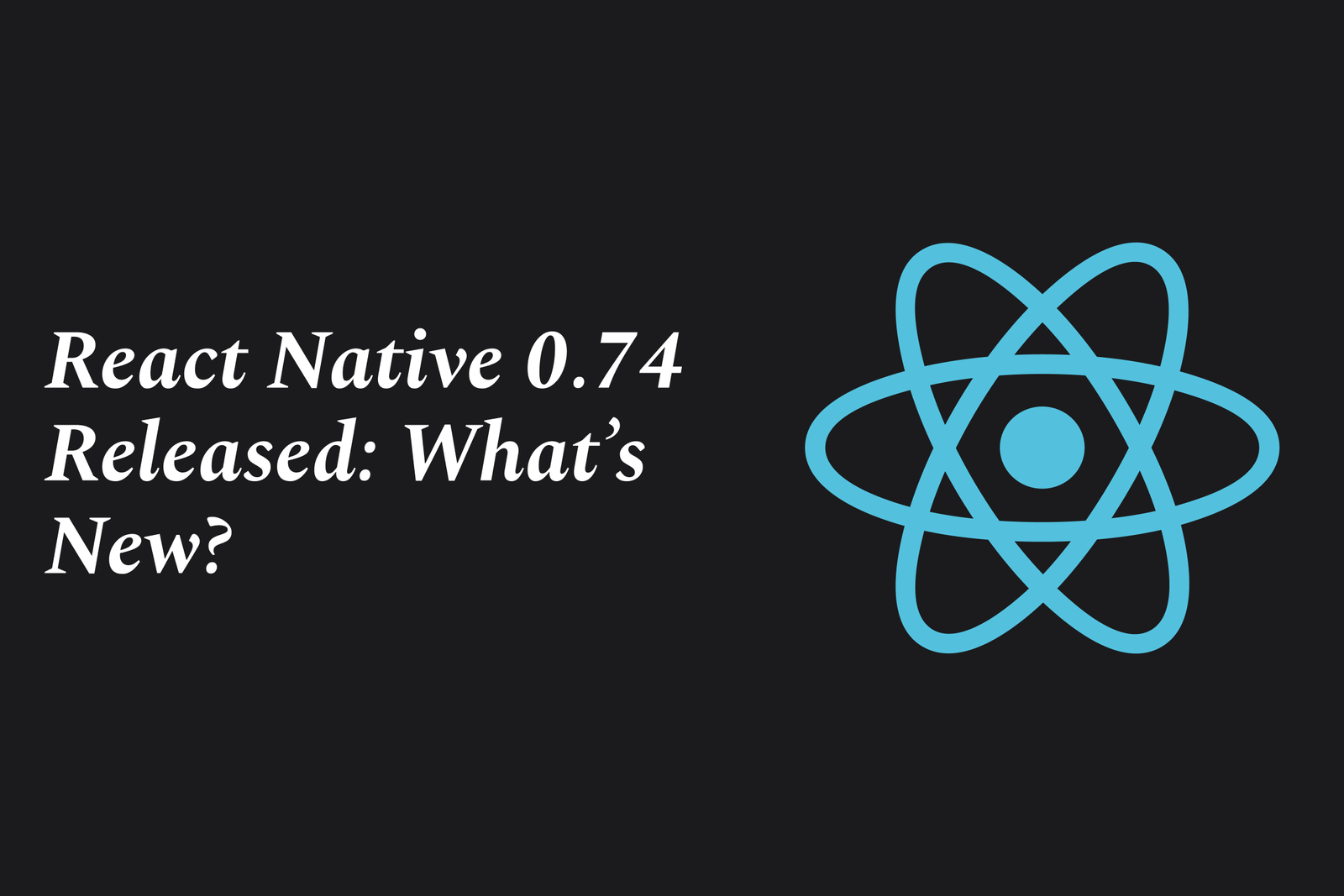React Native 0.74 Released: What?S New?
React Native 0.74 introduces Yoga 3.0, a bridgeless new architecture by default, and updates to Android NDK 26, enhancing performance, stability, and native integration. This release focuses on improving app reliability and developer experience across platforms.
React Native 0.74 Released: What’s New?
1 ) Introduction to React Native 0.74
React Native 0.74 has been officially released as of April 22, 2024.
This release continues the ongoing improvement and modernization of the React Native platform.
2 ) Key Highlights of Version 0.74
Yoga 3.0 Integration: The layout engine Yoga has been updated to version 3.0, enhancing layout performance and stability.
Bridgeless New Architecture: The new architecture is now bridgeless by default, which significantly simplifies the communication layer and improves runtime performance.
Android NDK Update: Integration with the latest Android Native Development Kit (NDK) version 26, supporting smoother native module development, fixes, and better compatibility.
3 ) Focus on Stability and Developer Experience
The update focuses on aligning dependencies and tooling versions to reduce crashes, especially on Android.
Efforts were made to handle hard to explain app crashes caused by mismatched NDK versions in dependencies.
Developers are encouraged to upgrade at the same time as their core dependencies to leverage these stability improvements.
4 ) Release Process and Version Management
The release follows a progressive release candidate process.
Prior to becoming stable, versions undergo heavy testing through production Facebook apps and community feedback.
React Native’s versioning and update cadence promote predictability and ease of adoption for the community.
5 ) Community and Contribution
This release is supported by multiple engineers from top companies like Callstack, Expo, Coinbase, and Meta, highlighting collaboration across the ecosystem.
Developers can look forward to ongoing improvements and architectural advancements in future 0.7x and 0.8x releases.
Summary:
React Native 0.74 brings significant improvements with Yoga 3.0 and a bridgeless new architecture by default, enhancing performance and stability. The update aligns the Android NDK to version 26 to address critical crash issues and improve native integration. It continues React Native's evolution toward a modern, seamless development experience, with a reliable release process and strong community collaboration.
https://justacademy.in/news-detail/will-flutter-replace-native-app-development?
https://justacademy.in/news-detail/flutter-ai-packages-gaining-traction
https://justacademy.in/news-detail/flutter-for-enterprise-level-desktop-apps
https://justacademy.in/news-detail/flutter-4.0-release-date-and-roadmap
https://justacademy.in/news-detail/freelancing-with-flutter-in-2025
Related Posts
Java supports GDPR and data privacy by enabling secure data handling through encryption, controlled access, and precise data management. It allows developers to minimize PII exposure, ensure data confidentiality, and design workflows that comply with data protection regulations effectively.
Java code quality tools have evolved to include advanced static analysis, integrated security checks, and AI-powered code reviews. These updates help developers detect bugs, enforce coding standards, and enhance security, streamlining the development process and improving overall code reliability.
Java remains a cornerstone in big tech companies, evolving with modern features like records, pattern matching, and virtual threads. Its robust ecosystem, enhanced performance, and growing AI integrations keep it vital for both legacy systems and innovative new projects.
Java and CI/CD pipeline optimizations streamline Java application development by automating builds, tests, and deployments. They improve efficiency through parallelization, caching, and secure secrets management, enabling faster feedback loops and more reliable, scalable software delivery.
Java supports modern cryptography standards through its flexible Java Cryptography Architecture (JCA), enabling integration of advanced algorithms like AES, EdDSA, and post-quantum tools. Libraries like Bouncy Castle offer FIPS-certified, hardware-accelerated implementations for secure development.
Java 23 enhances record patterns by enabling concise, direct destructuring of record components within pattern matching, simplifying type checks and data extraction. This improvement boosts code readability and expressiveness by reducing boilerplate in handling immutable data classes.
Java remains a top choice for mobile app backends, powering scalable, secure, and high-performance server-side solutions. Latest trends include cloud-native microservices, reactive programming, and enhanced JVM optimizations, enabling efficient, flexible, and robust mobile backend development.
Java SE 24 and LTS Java SE 21 offer enhanced features and performance, while Apache Spark 4.0.0 introduces Scala 2.13 support and advanced ML and SQL capabilities. Together, they empower developers to build scalable, high-performance data applications with modern tools.
JUnit 5 modernizes Java testing with a modular architecture, improved assertions, and seamless Java 8+ support. Beyond JUnit, tools like Mockito and AssertJ enhance mocking and assertions, creating a powerful, flexible ecosystem for writing clean, efficient Java unit tests.
Java plays a pivotal role in cloud automation tools by providing a robust, platform-independent language used to build scalable automation frameworks like Jenkins and Selenium, enabling efficient CI/CD pipelines, testing, and orchestration across diverse cloud environments.










